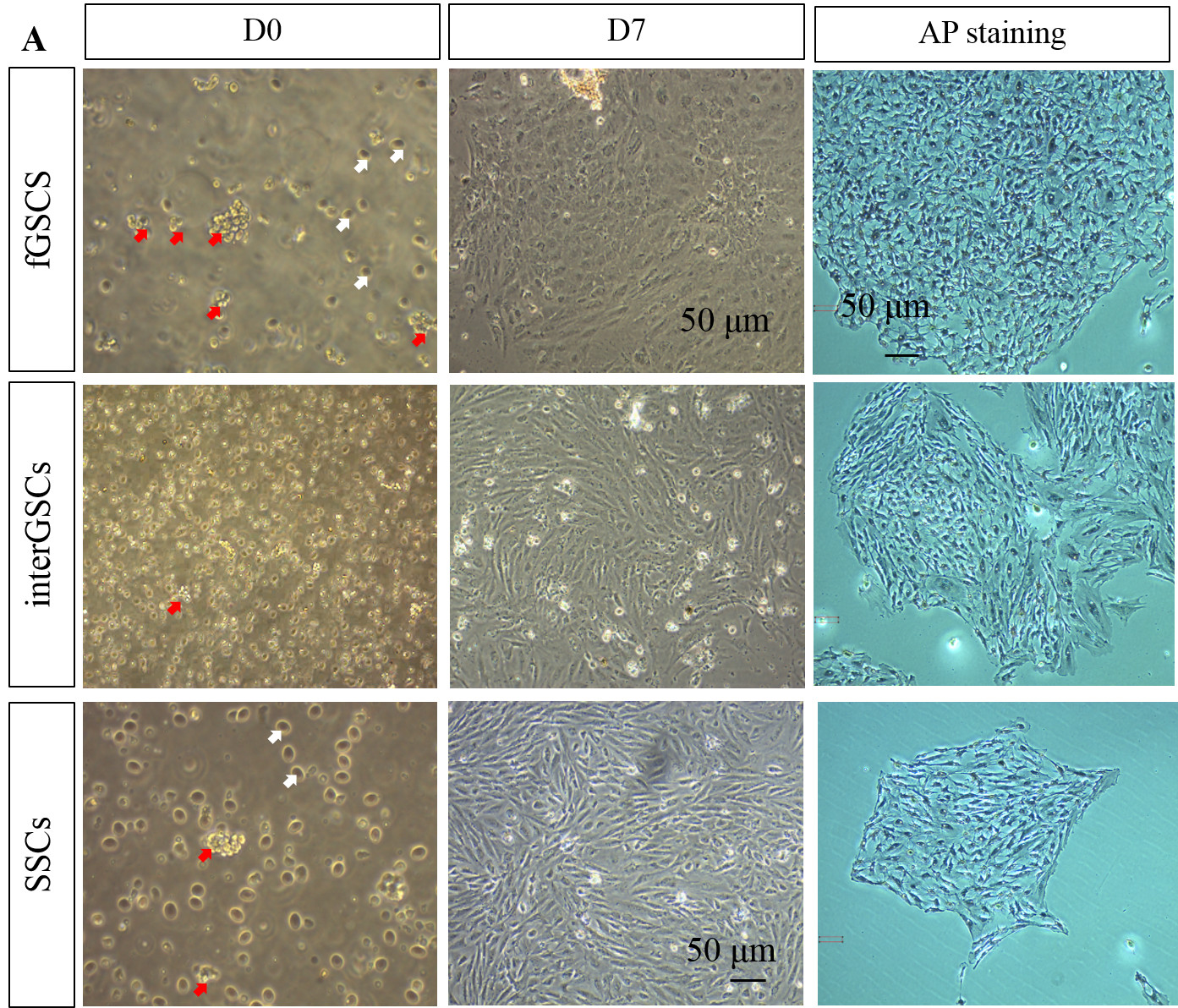
Newsroom
Germline Stem Cells are Isolated in Protogynous Hermaphroditic Monopterus albus
Germline stem cells (GSCs), originate from primordian germ cell (PGC) during embryogenesis, are a group of unique adult stem cells in gonads that are essential to genetic information transfer. Unlike somatic cells in the gonads, GSCs are highly specified and undifferentiated pluripotent cells that maintain the balance between self-renewal and differentiation through mitosis and meiosis.
Monopterus albus (M. albus) is one of the most important breeding fish for its high nutritional value and good taste. As a result of environmental stress, over-exploitation and their unique sex-reversal life history, the wild population of M. albus has decreased dramatically in recent years, leading to a severe shortage of young M. albus resource that has been a key limiting factor for aquaculture.
Recently, a research group led by Prof. SUN Yuhua from the Institute of Hydrobiology (IHB) of the Chinese Academy of Sciences successfully isolated and enriched GSCs from ovary, ovotestis and testis of M. albus. The study was published in Molecular Sciences.
In this study, the GSCs were found in the different stages of gonad development, including the ovary, ovotestis, and testis. Using a special separation method and medium, the researchers first isolated and enriched the female GSCs, ineterGSCs and spermatogonial stem cell (SSCs) from the ovary, ovotestis and testis, respectively. “Interestingly, interGSCs isolated from ovotestis were a group of mixture of GSCs, containing fGSCs and SSCs,” said Prof. Sun.
The researchers further analyzed the characteristic of GSCs. Cell morphology, RT-PCR analysis, immunofluorescence and alkaline phosphatase staining indicated that the cultured GSCs preserved pluripotent stem cell characteristics after several passages in vitro. Further transcriptome comparison assay suggested that distinct molecular signature exists for each type of GSCs.
To functionally identify the cultured GSCs, the researchers performed the germline transplantation. The results showed that fGSCs can successfully colonize and contribute to the germline cell lineage of host zebrafish gonad after transplantation.
This study provides an effective method to enrich the GSCs from the ovary, ovotestis and testis from M. albus, and the results represent a great advance in the isolation and culturing of GSCs from M. albus.

Image of AP staining of fGSCs, interGSCs and SSCs isolated from the ovary, ovotestis and testis, respectively. (Image by IHB)
(Editor: MA Yun)